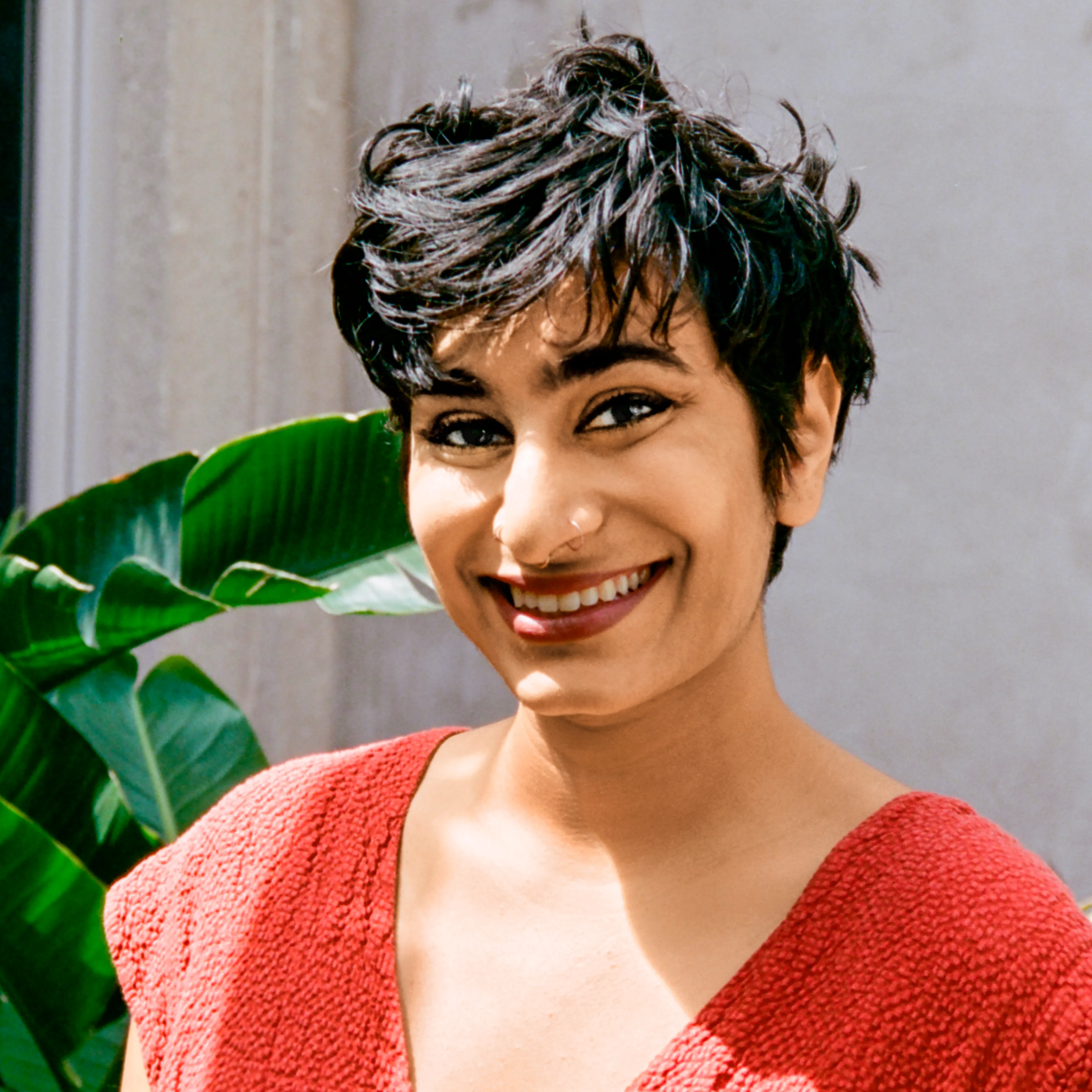these are my people & I find
them on the street & shadow
through any wild all wild
my people my people
a dance of strangers in my blood
the old woman’s sari dissolving to wind
bindi a new moon on her forehead
I claim her my kin & sew
the star of her to my breast
the toddler dangling from stroller
hair a fountain of dandelion seed
at the bakery I claim them too
the Sikh uncle at the airport
who apologizes for the pat
down the Muslim man who abandons
his car at the traffic light drops
to his knees at the call of the Azan
& the Muslim man who drinks
good whiskey at the start of maghrib
the lone khala at the park
pairing her kurta with crocs
my people my people I can’t be lost
when I see you my compass
is brown & gold & blood
my compass a Muslim teenager
snapback & high-tops gracing
the subway platform
Mashallah I claim them all
my country is made
in my people’s image
if they come for you they
come for me too in the dead
of winter a flock of
aunties step out on the sand
their dupattas turn to ocean
a colony of uncles grind their palms
& a thousand jasmines bell the air
my people I follow you like constellations
we hear glass smashing the street
& the nights opening dark
our names this country’s wood
for the fire my people my people
the long years we’ve survived the long
years yet to come I see you map
my sky the light your lantern long
ahead & I follow I follow
Published:
2017
Length:
Regular
Literary Movements:
Contemporary
Anthology Years:
2023
Themes:
Agency
Identity
Intersectionality & Culture
Literary Devices:
Enjambment
a line break interrupting the middle of a phrase which continues on to the next line
Imagery
visually descriptive or figurative language, especially in a literary work
Repetition
a recurrence of the same word or phrase two or more times
Simile
a comparison between two unlike things using the words “like” or “as”

